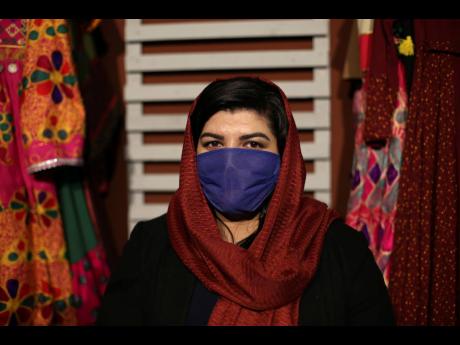Single COVID patient recovers in St Vincent - Caribbean coronavirus fight takes many forms
WHEN IT became apparent in January that the new coronavirus (COVID-19) would become a serious pandemic, the World Health Organization (WHO) stated that each country would have to adopt untested strategies to manage the crisis.
Here in the Caribbean, countries began implementing various methods of containment, varying from bans, curfews to states of emergency.
Proactive measures taken by the Jamaican Government in its response has been ultimately praised by the WHO.
The country’s ports were closed to all incoming travellers as of midnight March 21. However, to date, Jamaica has 44 confirmed cases, two recoveries, and three deaths as a result of COVID-19.
Health and Wellness Minister Dr Christopher Tufton said the country has only done 20 per cent of its testing capacity.
Similar strategies in one form or another, have also been implemented across regional states.
In an unprecedented move, the Dr Ralph Gonsalves-led Government of St Vincent and the Grenadines initiated work with farmers in that county, to make sure the entire population of 110,000 have access to food items that could boost their immune system.
“Our farmers and fisherfolk had to be central in the COVID[-19] plan for the islands,” said Gonsalves.
Last Friday, Luke Browne, the country’s health minister, declared St Vincent and the Grenadines free of the novel coronavirus.
Court orders
He further announced that “the island’s only confirmed coronavirus patient has now recovered” after a repeat test, which turned out negative. He said a total of 31 tests came back negative.
Dr Gonsalves told The Gleaner that his government has used court orders as a significant means of enforcing quarantine regulations.
“Yesterday, when American Airlines came in from Miami with some 80-plus passengers onboard, we had court orders for all of them when they arrive to go straight into quarantine, because the US is a hotspot for the virus,” he said.
“All the ports of entry of the Grenadine islands – Union, Mustique, Canouan and Ashton – are closed to pleasure crafts and cruise ships.”
While other Caribbean islands, including Barbados, have utilised states of emergency to control people’s movements during the crisis, Gonsalves said his government has opted to use a different method.
These include the tracking of people coming into the island, ports closures, ban of amplified music in public or private premises, and public education, which he said has been successful.
Meanwhile, the Barbadian COVID-19 response has entered its third stage, after 24 cases were reported as of March 26.
This third phase of their response involves the declaration of a public health emergency that came into effect as of Saturday, March 28, in tandem with islandwide curfews.
Over in Trinidad and Tobago (T&T), which confirmed its first case of COVID-19 on March 12, there have been three deaths, and at last report, nearly 80 positive cases. The T&T health ministry said it has discharged only one patient so far.

